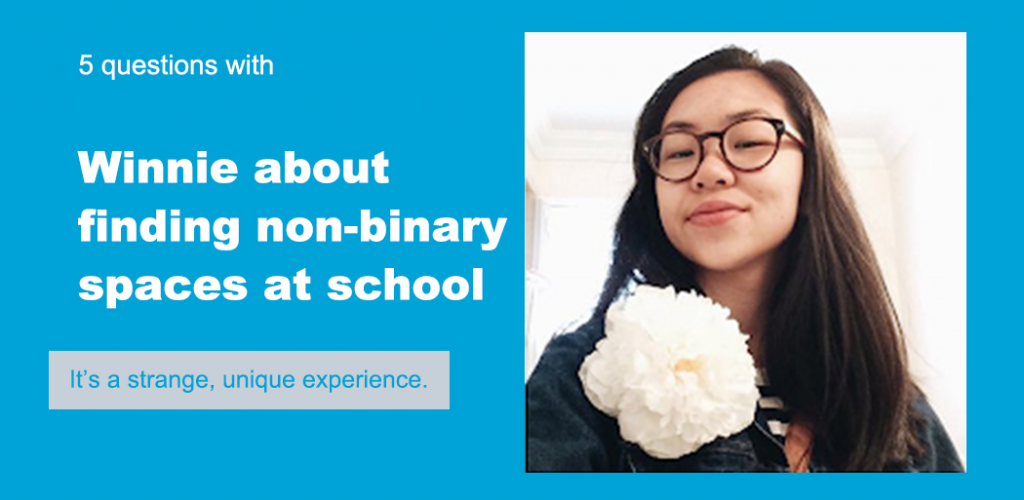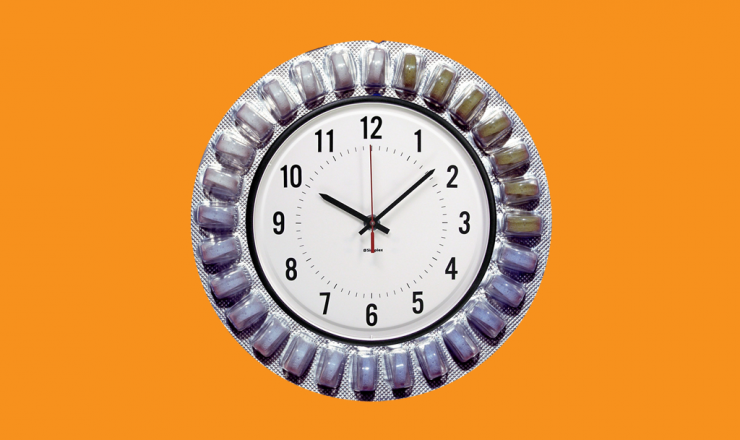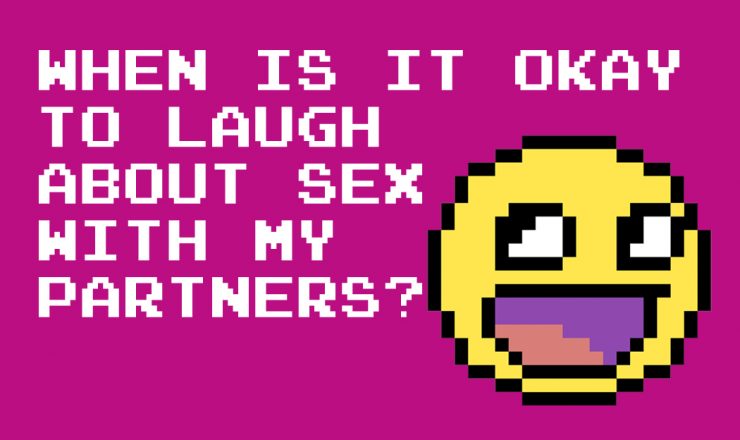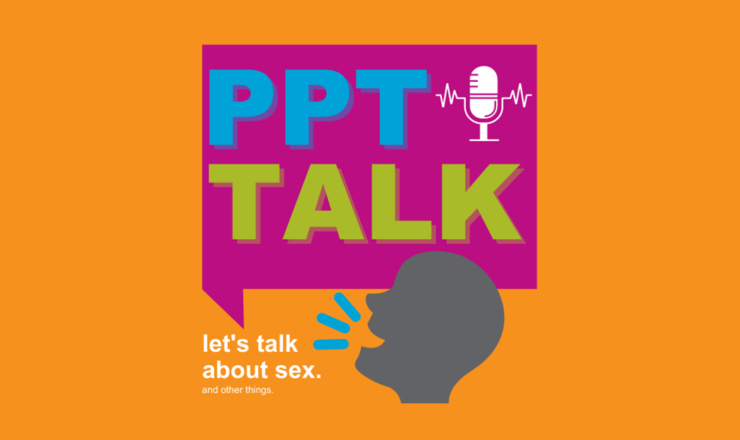

5 Questions is where Teen Health Source volunteers ask 5 questions to people about their unique perspectives on everything to do with sex and gender. In this instalment we interview Winnie, a third-year student at the University of Toronto for neuroscience and cinema studies. Outside of school, they are interested in graphic design, film photography and sustainability, and can usually be found tweeting at @anomalisas. Winnie identifies as non-binary.
No problem! It’s a strange, unique experience. On one hand, I feel intrusive and am lying about my identity. If I get misgendered, it’s not anyone’s fault because I made a choice to attend a female only event. On the other hand, I present as female which means I’m treated like one by most people, so I can relate to female experiences and find advice for navigating different spaces as a woman helpful.
I feel guilty about stuff like this but then I’m like well it’s not like my STEM program is going to host a women + nb event anytime soon
— winnie (@anomalisas) June 6, 2017
With the debates over gender neutral pronouns that happened on campus over the past year, there’s definitely been a conversation about non-binary people, but it hasn’t been extended to their presence in STEM, as far as I know. However, because of those debates, I did find out that physics professor A.W. Peet [Link] is non-binary and just having their presence at school makes me feel safer. It gives me hope for my own future in science as a non-binary academic, but there’s still a lot of progress with inclusivity to make.
The internet is where I feel most myself and is how I realized that I was non-binary, so identifying publicly helps to make me more visible to other non-binary people who want to share their experiences. It allows me to talk about things from transphobia to the less serious obstacles of making phrases (ie. “I’m a big boy/girl now”, “Your mcm/wcw…”) gender neutral. Offline, it doesn’t come up as much. It’s still difficult coming out to older friends who referred to me with female pronouns and correcting people.
There are some great events for Pride Month that are trans inclusive, and the Gladstone Hotel hosts performances, trivia nights and screenings of Drag Race all year round!
I’m looking forward to seeing Baby Driver and Dunkirk. I don’t like to know too much about movies before I see them but Edgar Wright and Christopher Nolan have had good track records so I trust that they’ll be good.
I also love creating movie playlists so here’s one for this summer:
If you have questions about this topic, feel free to contact one of our peer educators. [Link]
Check out our 5 Questions tag for more interviews from this series: Link.
Last Updated: August 2021

Remembering to take your birth control pill at the same time every day can be tricky. This post covers what people can do in the event that they are late/forget taking a pill.

Sex can be a really intimate and vulnerable activity for people. Because of this, laughter can be a really powerful thing, both positively and negatively. But how do you know when it’s okay?

Peer educators from Planned Parenthood Toronto’s PEAK project have started a podcast